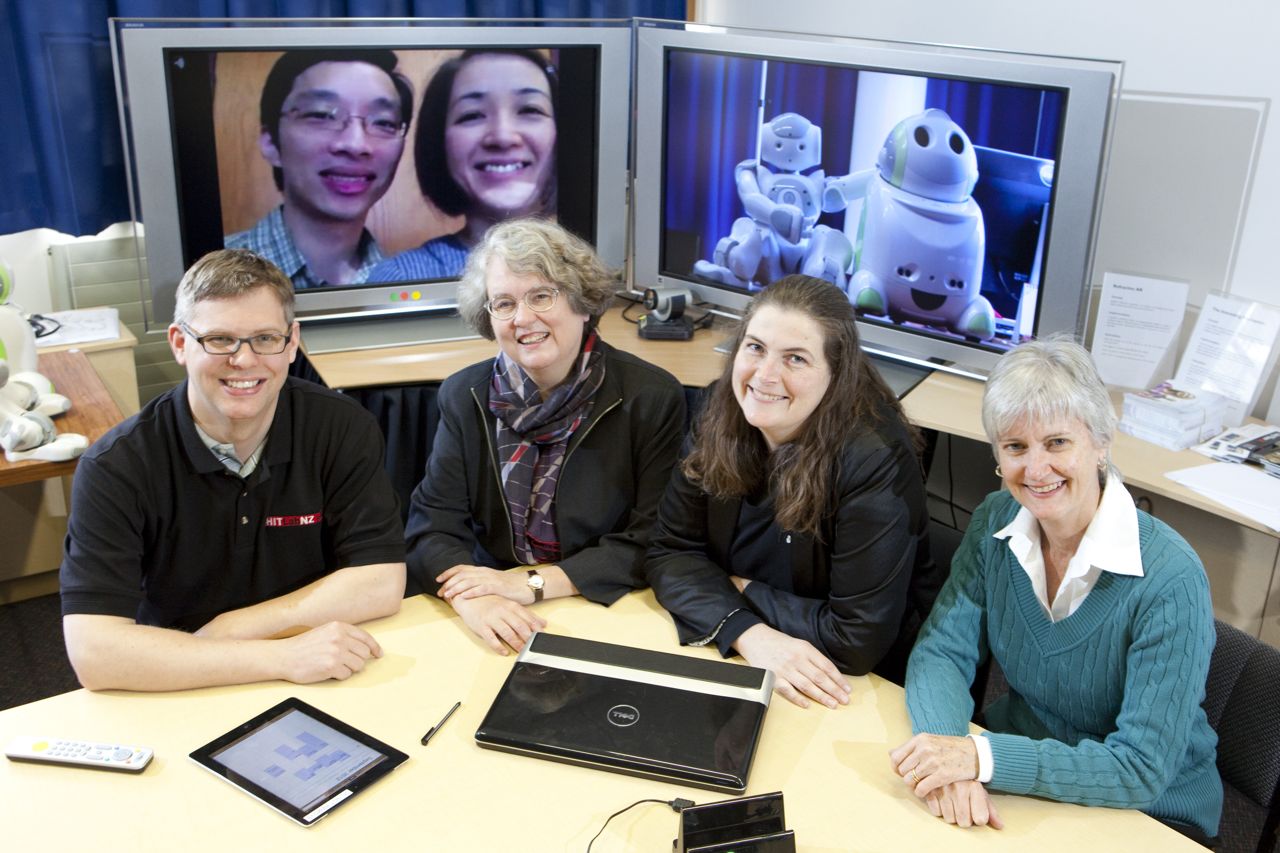We had our first official kick off meeting for the Wordovators Project. The Wordovators project is a collaboration between the Northwestern University, New Zealand Institute of Language, Brain and Behaviour (NZILBB) and the Human Interface Technology Laboratory New Zealand (HIT Lab NZ).
Few things support people’s ability to learn from each other as much as words do. Words are a locus of meaning, and new words are constantly created to communicate new meanings. A rich and dynamic lexicon (or inventory of available words) is a hallmark of the intelligence, curiosity and adaptability of our species. Our goal is a fundamental understanding of the mechanisms that explain the creation, evolution, and adoption of words in language communities. We tackle new questions about the interaction of cognitive and social factors in the lexical dynamics, the mechanisms that sustain linguistic complexity, and the similarities and differences between linguistic systems and biological systems.
Our conceptual tools come from many fields, including psycholinguistics, experimental economics and evolutionary biology. The centerpiece of our proposal is the creation of a software suite for experiments in the format of computer games. It will make possible extremely large-scale experiments hosted on the web, which will explore the complex interaction of individual traits and cooperative tendencies in shaping the lexicon. They will provide a common platform for gathering data in and out of the lab, and comparing adolescents and children to adults. The design and interpretation of the experiments will be supported by computational simulations of lexical dynamics in communities.

